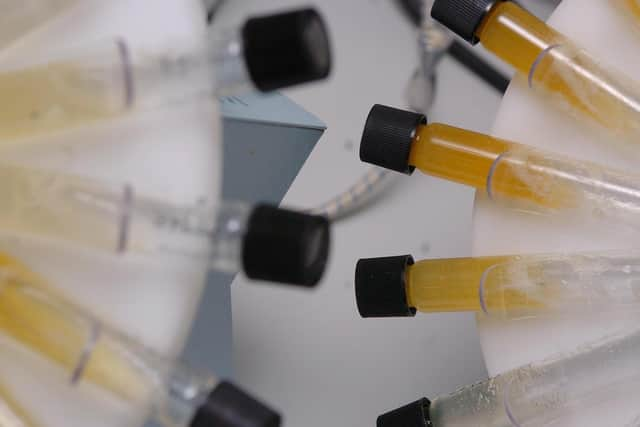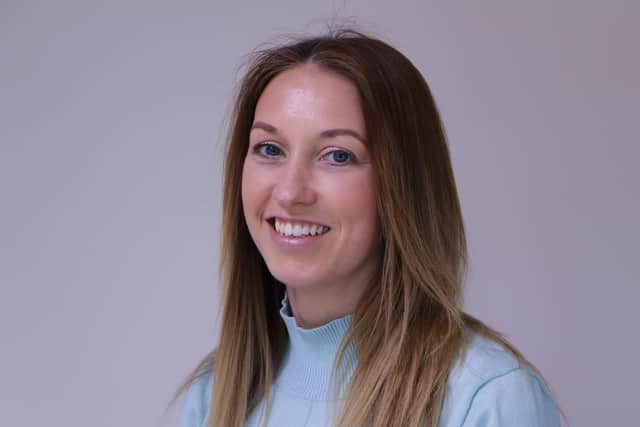Yorkshire at the forefront in beating doping in sport
A team of researchers from Leeds Beckett University, have called for changes to be made to encourage more athletes to come forward if they had suspicions of wrongdoing.
The call to action follows on from a groundbreaking study, conducted by the university on behalf of the World Anti-Doping Agency (WADA), of more than 400 British and US elite athletes and coaches.
Advertisement
Hide AdAdvertisement
Hide AdResults revealed that fewer than half feel their sport actively encourages them to report doping while nearly a quarter of athletes surveyed feared they would be labelled as a "snitch" if they expressed their suspicions.


It also found that the vast majority of respondents admitted the negative reaction towards whistleblowers could discourage them to come forward if they saw evidence of wrongdoing.
Dr Kelsey Erickson, the lead researcher, from the university, said: "Our goal is for reporting misconduct to become the expectation rather than the exception.
"Ensuring people know where and how to report was something that was highlighted as critical in our research".
Advertisement
Hide AdAdvertisement
Hide AdDr Erikson, who is now the anti-doping director at USA Cycling, added: "When it becomes the expectation that you will be reported for misconduct, it is then that whistleblowing becomes a true deterrent."


The study: "Blowing the whistle on doping in sport through evidence-informed policy making," is the first of its kind to be conducted among elite athletes and coaches in the UK and US.
A total of 301 athletes from 54 sports – all of whom had represented their country at international level – along with 139 coaches were questioned.
The investigation showed 93 per cent of coaches and 83 per cent of athletes felt that reporting doping was their responsibility, but barriers to reporting were evident throughout the research. While just 45 per cent of coaches and 38 per cent of athletes surveyed felt their sport actively encourages them to report doping, with more than half were aware of Wada’s whistleblower programme.
Advertisement
Hide AdAdvertisement
Hide AdAlso fewer than a quarter of coaches (24 per cent ) and athletes (22 per cent) surveyed felt that the public reaction to those who have reported doping in sport would encourage them to do the same.


For the first time, the role of emotion was noted in this research as nearly half of coaches (45 per cent) and athletes (42 per cent) agreed they would feel anxious if they reported doping in sport.
The project suggests that establishing a culture of feeling able to speak up and have confidence that concerns will be listened to – and acted upon – is the most important element of whistleblowing.
Professor Sue Backhouse, report co-author and director of research at the Carnegie School of Sport at Leeds Beckett, said Wada now needed to develop better policies to encourage the reporting of doping.
Advertisement
Hide AdAdvertisement
Hide AdShe said: "Our findings underscore the need to celebrate those who show courage by coming forward with information of rule violations.


"Wada and their broader community now need to work together to establish a culture where people feel able to speak up and have confidence that their concerns will be listened to – and acted upon."
To raise awareness of the research, a video detailing the experiences of courageous individuals who blew the whistle on doping, produced by the Northern Film School at Leeds Beckett University, has been released.
The research team hopes the video will help remove the barriers to speaking up to protect the integrity of sport.
Advertisement
Hide AdAdvertisement
Hide AdDr Laurie Patterson, co-investigator from Leeds Beckett University, added: “WADA is working to emphasise the positive difference individuals and groups can make when they come forward with information on wrongdoing.
"WADA and their broader community now need to work together to establish a culture where people feel able to speak up and have confidence that their concerns will be listened to - and acted upon."
________________________________
Editor’s note: first and foremost - and rarely have I written down these words with more sincerity - I hope this finds you well.
Almost certainly you are here because you value the quality and the integrity of the journalism produced by The Yorkshire Post’s journalists - almost all of which live alongside you in Yorkshire, spending the wages they earn with Yorkshire businesses - who last year took this title to the industry watchdog’s Most Trusted Newspaper in Britain accolade.
Advertisement
Hide AdAdvertisement
Hide AdAnd that is why I must make an urgent request of you: as advertising revenue declines, your support becomes evermore crucial to the maintenance of the journalistic standards expected of The Yorkshire Post. If you can, safely, please buy a paper or take up a subscription. We want to continue to make you proud of Yorkshire’s National Newspaper but we are going to need your help.
Postal subscription copies can be ordered by calling 0330 4030066 or by emailing [email protected]. Vouchers, to be exchanged at retail sales outlets - our newsagents need you, too - can be subscribed to by contacting subscriptions on 0330 1235950 or by visiting www.localsubsplus.co.uk where you should select The Yorkshire Post from the list of titles available.
If you want to help right now, download our tablet app from the App / Play Stores. Every contribution you make helps to provide this county with the best regional journalism in the country.
Sincerely. Thank you.
James Mitchinson
Comment Guidelines
National World encourages reader discussion on our stories. User feedback, insights and back-and-forth exchanges add a rich layer of context to reporting. Please review our Community Guidelines before commenting.